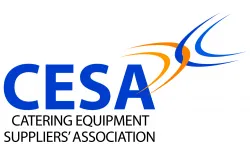Cannot load form
Sorry, this form requires you to accept Analytics and Functional cookies before it can load. Click here to allow these types of cookie.
The Environmental Audit Committee published its report on 25th April 2018 on "UK Progress on Reducing F-gas Emissions". The report calls on the Government to enforce existing F-gas regulations and use its procurement power to promote products with la lower global warming impact. ACRIB members contributed to the Environment Audit Committee inquiry last year and gave evidence to a meeting in Westminster as well as sending follow up documents and information. The ACRIB Board has welcomed the report conclusions which reflect some of the main issues the industry wanted to raise around the need for training for new refrigerants and improved enforcement of existing regulatory requirements.
The report examines the issues surrounding the regulatory impact of the UK’s withdrawal from the EU’s F-gas regime, and the knock-on effect issues such as F-Gas regulation could have on multilateral international agreements (where both the UK and EU are signatories), and on future trade deals. It has also called on the NHS and medical companies to reduce the production and use of Metered Dose Inhalers, establish a recycling system for them, and legislate to avoid them going to landfill.
https://publications.parliament.uk/pa/cm201719/cmselect/cmenvaud/469/469.pdf
Mary Creagh MP, Chair of the Environmental Audit Committee, said: “At present, the Government is failing to enforce the regulations surrounding F-Gas emissions, particularly on car air conditioning units, while the NHS remains reliant on F-gas fuelled inhalers despite less damaging alternatives being available and widely used in other European countries. The Government, the NHS, manufacturers and medical companies should be doing much more to address F-gas emissions. International cooperation on removing F-gas emissions could have hugely beneficial consequences for future generations.”
The reports states that:
- F-gases have contribute considerably more the global temperature rises, but are replaceable by less damaging alternatives.
- The Government must enforce existing F-Gas regulations to meet legally binding carbon budgets, and must allocate resources to monitoring illegal sale, use and handling of F-gases.
- The Committee heard that online vendors of F-gases (or products containing F-gases) are not always checking that those using them are qualified and trained to do so. There are concerns from the refrigerant industry that some mechanics might be tempted to substitute more expensive lower GWP alternatives (which contribute less to climate change) for cheaper higher GWP refrigerants (which contribute more). There are also concerns that as EU quotas begin to drive up the price of higher GWP refrigerants, mechanics may be tempted to retrofit mildly flammable lower GWP refrigerants in older non-flammable car air conditioning units, which could be dangerous.
- The NHS should reduce reliance on asthma medication which uses Metered Dose Inhalers (MDIs), which use high GWP HFC propellants (which contribute more to climate change than alternatives).
- Medical companies or the NHS should establish a pharmacy-based inhaler recycling system to ensure that residual HFCs from MDIs are recycled rather than released in landfill. The UK uses 35 million MDIs a year, and only about 0.5% are recycled.
- The Government should use its procurement power to promote dry powder alternatives.
- The UK's withdrawal from the EU raises significant challenges for the UK's F-gas regime – depending on the future relationship with the EU’s F-gas quota system.
- The UK's withdrawal from the EU has led to uncertainty over the status of mixed multilateral international agreements, where both the UK and EU signed.
- There is an outstanding issue of UK companies which hold F-gas quotas and how this will be organised post-Brexit.

















